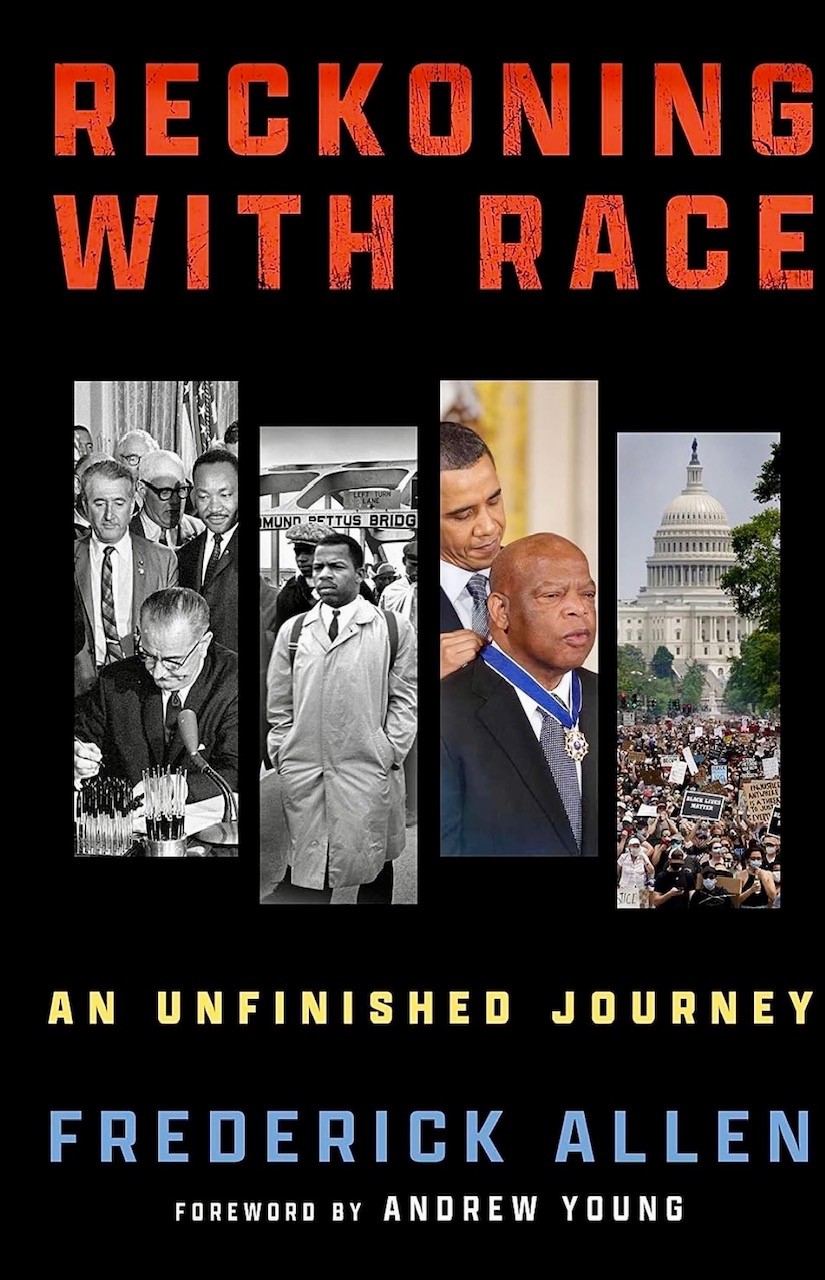By M. Alexis Scott
Ordinarily, a new book on race by a 74-year-old white man might not generate great excitement among Black readers – but this one is different. It’s a collection of essays called Reckoning With Race: An Unfinished Journey, by Frederick Allen, the former Atlanta Journal-Constitution political columnist, longtime panelist on TV’s “The Georgia Gang,” and a good friend of mine for now a half-century.
Rick has made a serious study of race since arriving in Atlanta in 1972, and his observations may surprise you. His central thesis is that white people have to be involved in getting race relations to higher ground, and deserve credit for trying even if their efforts sometimes fall short. I told him recently, only half kidding, “You White folks created this mess, so you definitely have to be a part of solution.”

Rick’s book, available Aug. 1, is organized into three arcs. The first six essays describe his years at the newspaper, learning lessons about race on an almost daily basis. The main revelation for Rick was discovering that the Atlanta Constitution’s liberal reputation, cemented by the progressive front-page columns of publisher Ralph McGill during the civil rights era, was not entirely deserved, as evidenced by a notorious series called “City in Crisis” that ran in 1975 and took aim at Atlanta’s first Black mayor, Maynard Jackson. During recent white administrations, the newspaper said, Atlanta was “Camelot,” but had now lost its way as “the Jackson administration stumbles from one scandal to another.”
The series, which Rick helped write, was “one-sided, deaf to the voices of the Black community, and unsettling to many in the city,” he now concedes. I can recall being one of those who were deeply unsettled, as I had just gone to work at the newspaper and wondered what I had gotten into.
To his credit, Rick kept an open mind and worked hard to see things from others’ perspective. We’ve talked often about a Catch-22 for white folks sympathetic to civil rights and other Black concerns: No white person can ever know what it is like to experience racism, yet, as Rick argues, there is an enduring need for white people to try to empathize, to try to imagine what it’s like to be Black in America, and to do what they can to change things.
I think you’ll appreciate Rick’s tales of getting to know and befriend Black leaders, starting with Maynard Jackson, and including Julian Bond, John Lewis, and Andy Young, who contributed the foreword for his book. As Young writes, “During the most trying days of the civil rights movement, Martin Luther King Jr. would turn to me in places like Birmingham, Alabama, and say, ‘Let’s find some white folks we can talk to.’ Rick is white folks we can talk to.”
The second arc of Rick’s book is a series of essays that deal in one way or another with US presidents, including George Bush, Lyndon Johnson, Barack Obama, Donald Trump – and even Andrew Johnson. In an intriguing piece on Oliver Otis Howard, the first head of the
Freedman’s Bureau after the Civil War (and who later has his name on Howard University), Rick recounts Howard’s shortcomings as a general on the battlefield and concludes they may have handicapped him as he tried to persuade Johnson not to undo Reconstruction. Reflecting back on his time as CNN’s lead political commentator during the 1988 presidential race, Rick has an intriguing take on Willie Horton – how the liberal media made him into a racial bogie man.
Rick’s last essays are the most ambitious, as he examines the changes in how we think about and deal with race that have unspooled over his five decades of observation and studying the subject. You may find yourself wishing, as I did, that he had traveled further. He embraces the argument in favor of reparations that Ta-Nehisi Coates advanced in a landmark Atlantic article in 2014, for instance, but insists that no workable plan to administer them has yet been crafted. A plan is out there. There just aren’t enough members of Congress willing to adopt such a plan.
All in all, though, he has kept his eyes open, along with his mind. I once remarked to Rick, “White people think about race when it suits them. We think about race every day because we have to.” I know he got the point, because he quotes it often. The truth is, Rick doesn’t have to think about race at all. He’d be the first to tell you he experiences white privilege, more than most white people. But he is using it to help make America live up to the true meaning of its creed. Read his book.